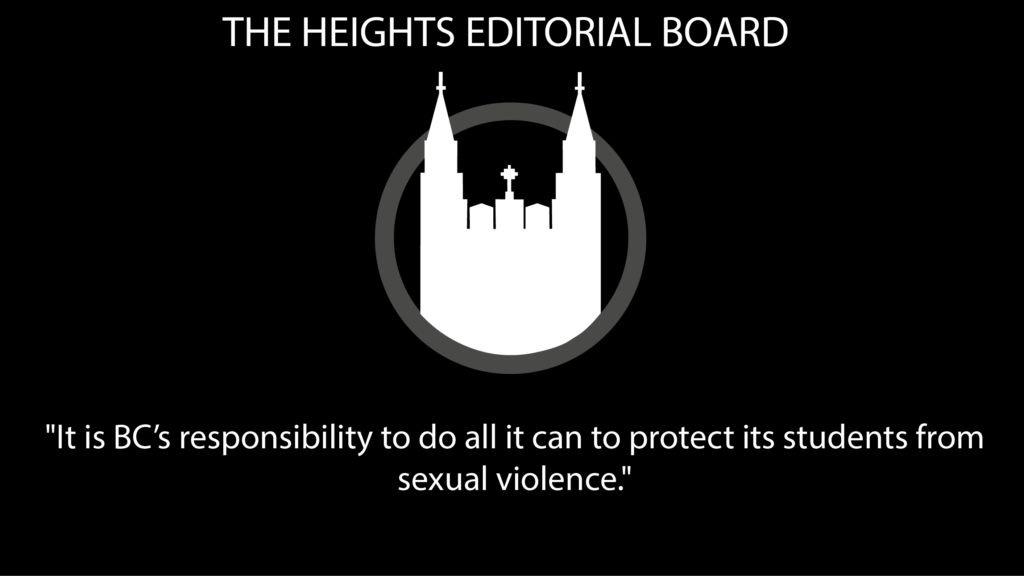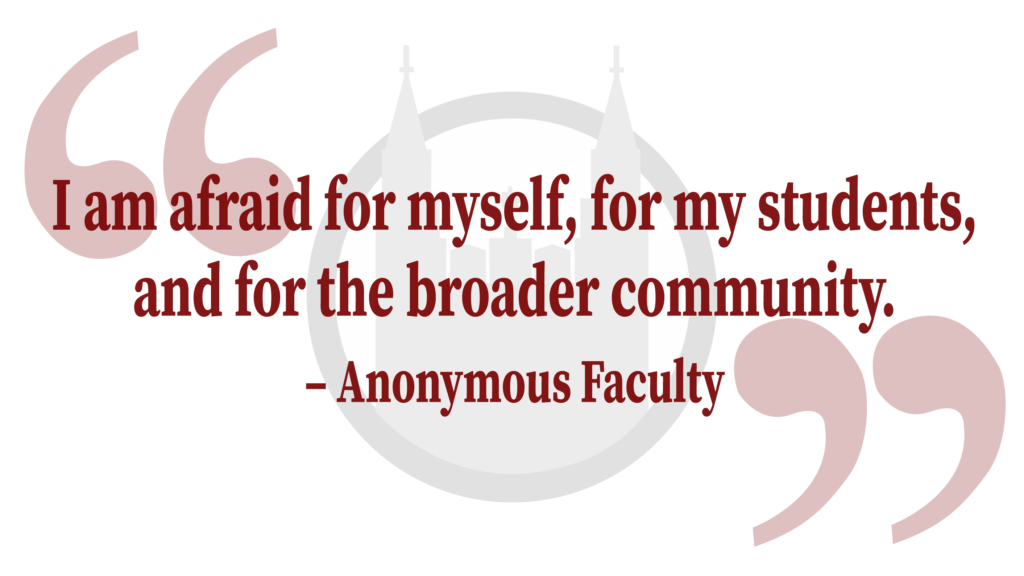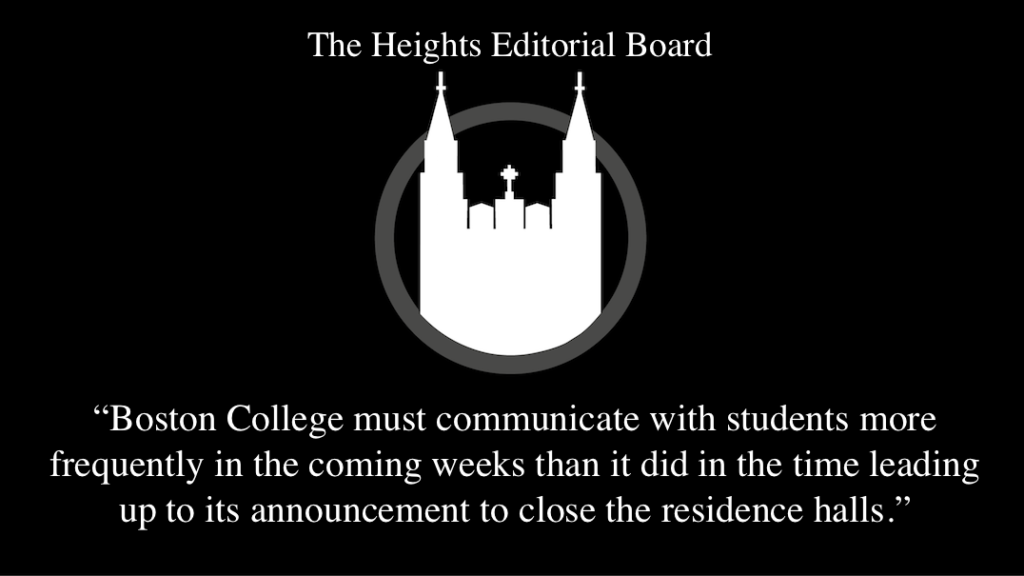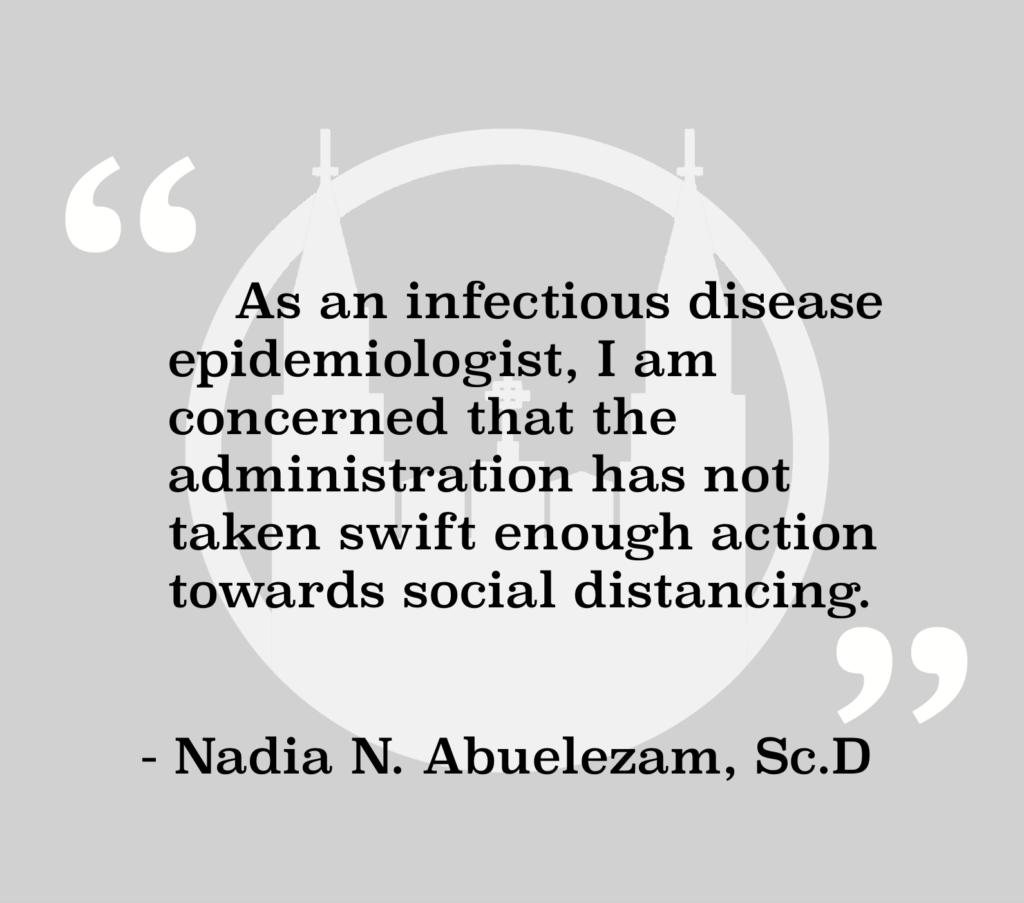The Massachusetts State Legislature is preparing to vote on Bill S.764 and Bill H.1208, two separate House and Senate bills relating to sexual violence on college campuses. If passed, the bills would establish mandatory sexual assault climate surveys for universities and colleges in the state and mandate programs such as annual Bystander Intervention and that schools use a ‘preponderance of evidence’ standard when investigating cases of sexual violence. That standard is consistent with guidelines previously provided by the Obama administration. The Trump administration has revoked Obama-era guidelines and is preparing to give colleges the option to use the higher ‘clear and convincing’ standard. The ‘clear and convincing’ standard would make it more difficult to prosecute assault cases.
Boston College should implement most of the bills’ suggestions whether or not they are made law.
Bystander Intervention, a program that only requires freshmen participation should be mandated for students during all four years of their education at BC. Extending the program would help reach additional students and ensure that students would be reminded of their capabilities and responsibility to intervene in an assault situation. Additionally, a sexual assault climate survey should be conducted annually so that the University has a consistent understanding of attitudes toward sexual violence on campus. It is imperative and beneficial to have a survey of this kind separate from the Student Experience Survey. Sexual assault climate deserves its own survey so that the magnitude of the issue does not get lost among questions about Newton busses.Students are more likely to take a sexual assault climate survey seriously when it is given separately from a survey which touches on everything from intramural sports to bus availability.
The University should also make it abundantly clear which standard it plans to use when prosecuting cases, and give clear reasoning as to why it chose that specific standard.
Sexual violence is unfortunately a pervasive issue on any college campus, and BC is not an exception. The number of rapes reported to the BC Police Department went up from 27 in 2016 to 38 in 2017. Though this does not necessarily indicate an uptick of overall rapes, as only 20 percent of cases are reported, it does prove that sexual violence happens to BC students. Sexual violence is an extreme form of trauma that affects victims on a day-to-day basis. Panic attacks, depression, suicide, anxiety, sleep disorders, and flashbacks can all be present in victims as a result of the trauma. Half of female undergraduates who are assaulted will develop post-traumatic stress disorder for the rest of their lifetime.
The University should implement elements of the law, such as Bystander Intervention training all four years and a campus-wide sexual assault climate survey, whether or not the bills pass. It is BC’s responsibility to do all it can to protect its students from sexual violence.


















